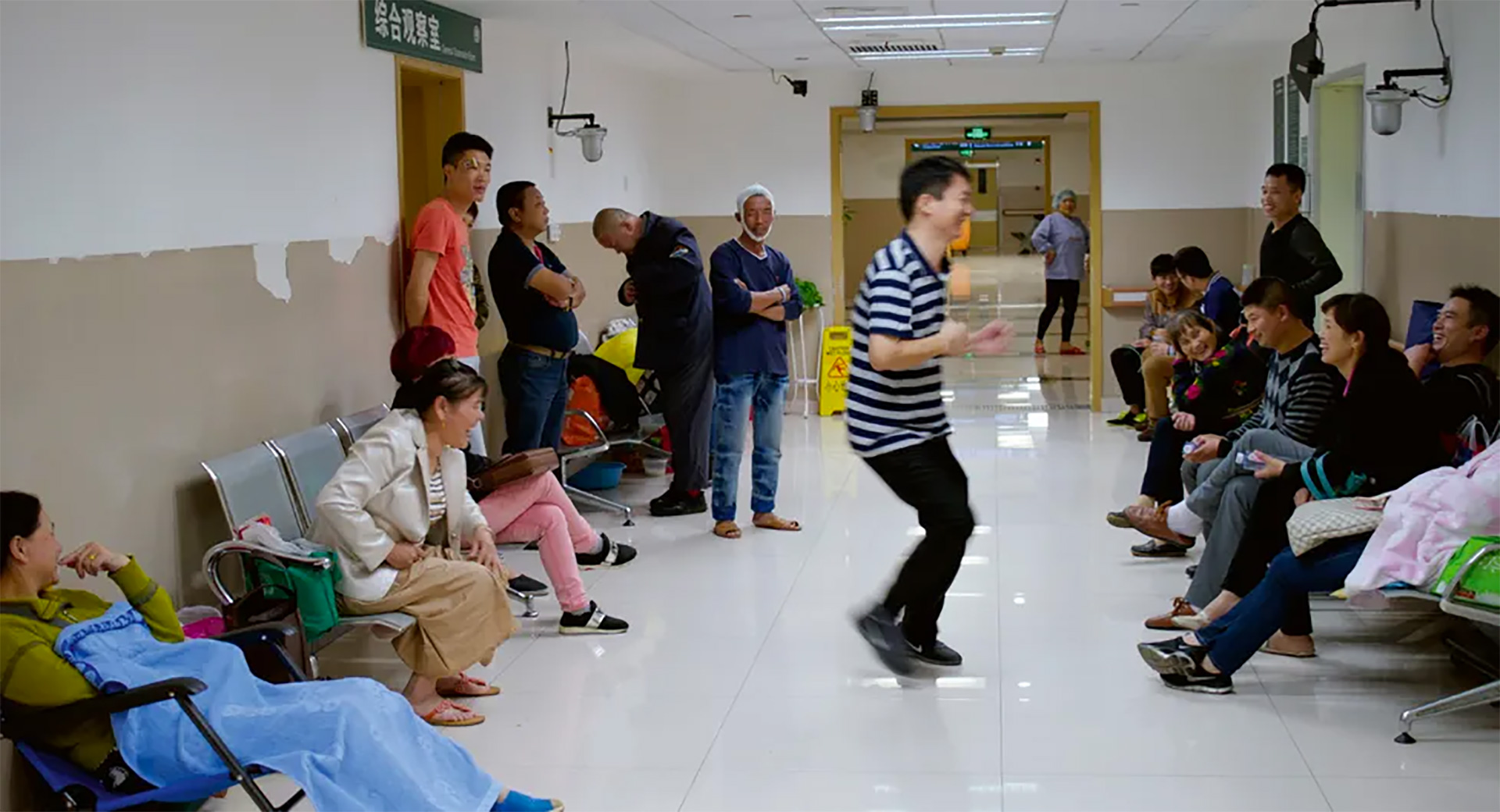Some hospitals are better suited for your needs than others no matter where you reside. Maybe you’re lucky and the best is local in case of emergency. Maybe you need to take the night train just to reach it for the opportunity to find a bed days later. And depending on insurance, you’re always forced to weigh options with family before even beginning to think about attempting the services they offer. To therefore set a camera inside one of the busiest medical establishments within a metropolitan city is to witness a cross-section of its population in crisis. Patients, doctors, nurses, aides, even hairdressers separated by cultural, economic, and social lines are united in a fight to find their way through whatever tragic turmoil brought them together.
That’s all the drama director Yé Yé needs for her debut documentary H6 to succeed as a captivating, humanistic portrait of today’s often unfortunate clash between compassion and capitalism. The Sixth People’s Hospital is one of Shanghai’s largest and subsequently sees so many people filtering through that it can’t help but curb the chaos with “one visitor at a time” mandates. With over 25 million citizens and countless visitors from outside the city’s borders seeking medical assistance, it also shouldn’t surprise you that families know to bring cardboard and blankets with them so they can camp out in the corridors awaiting word from doctors rather than paying for shelter elsewhere. The result manifests quarrels, laughter, and… song, thanks to Hua Mengxia’s eternally optimistic dad.
Thus he’s probably the most memorable character of the whole, with employees often peering through cracks in the door to wonder what’s gotten into him today—considering the circumstances that have forced him to linger in those halls (his wife and daughter were in a car accident that killed the former and left the latter with two broken legs). People laugh that Mengxia is tone-deaf, but stands unfazed in the belief that happiness is the best medicine for both himself and anyone else lost in contemplative thought. Adopting that mindset is easier said than done when others waiting beside him deal with crippling debt, dementia, and the decision to spend thousands of yuan for a surgery pretty much guaranteed to provide little solace.
Those mired in fear and doubt can’t be blamed for letting them take hold, though—not when it seems like their options are poverty and death with zero wiggle room between. That goes for a farmer who can’t feel anything below his neck asking his brothers to borrow money for surgery, or a three-year-old girl hit by a bus outside her grandfather’s fruit stand. The former’s wife must consider the costs of rolling the dice on his life when she has two children to look after; the latter is too young to decide on her own when her guardians realize gaming the system to increase a disgracefully low, out-of-court settlement is probably their best chance to pay bills.
And while these families (as well as a sweet older gentleman visiting his bedridden wife) pass each other throughout the hospital—Yé Yé is often able to shift her camera’s focus from one to the next for ready-made transitions—there’s also a crippled man hobbling along the streets of Shanghai alone. Is he a patient? Visitor? We don’t find out until the final thirty minutes, as he finally makes his way into the building for an appointment. In the meantime we watch him struggle down escalators and rest on his wooden folding chair when not being left behind by buses because he’s too slow to board on time without somebody being willing to help. Why go through so much trouble? I’ll leave that to the film.
The reason for this is simple: Yé Yé never shows anything without a purpose. Even her three kinetic interludes arrive with the intention to provide a breather in the form of lighter, assembly-line palette cleansers constructed from colorful baskets and upbeat music. Following that man on a crutch will have a payoff. Watching a new character readying for an early-morning run with a humorous gait that’s punctuated by high knee lifts will prove just as eccentric in his white coat once the film moves to his unique bone-setting processes. Background details surrounding young Song Xueling (bus) will find context in scenes depicting her home life, and the tears falling from those around Nie Shiwu (quadriplegic) will ultimately carry extra burden beyond genuine worry about his recovery.
Despite the end results proving depressing almost without fail—even when the patient gets to leave their bed behind—H6 somehow finds a way to still be uplifting. I guess it’s because of just how many people are trying to do right by one another within a broken system. For Mengxia to deal with what he’s dealing and still bring smiles to the faces of strangers means something. A nurses’ aide working 20 hours a day to care for these people’s loved ones means something, no matter that we can’t quite tell whether she’s also shrewdly conning the room for some extra investment capital. Even doctors reminding patients how much money they would be “wasting” for long survival odds means something—they understand their dilemma.
Yé Yé exposes how this hospital is often just as unwitting a participant in the corrupted organism called healthcare as those with no choice but to sell their souls for a chance at relieving their pain. One must commend the holistic approach at play; I’m not sure the same exists here in America with doctors and specialists making a point to overcharge insurance companies regardless of what their procedures should cost. And while some will say the presence of a camera breeds some of these reactions, I’d disagree. There’s too much honesty onscreen to believe anyone ever alters their responses. Everyone involved is either driven by or reacting to desperation, so there’s no room for artifice. The stakes are too high.
H6 screened at the Cannes Film Festival.

